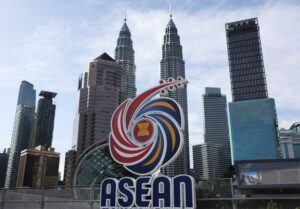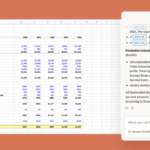
KUALA LUMPUR – The ASEAN bloc of Southeast Asian countries and China signed an upgrade to their free trade agreement on Tuesday, covering digital, green economy and other new industries, Beijing's commerce ministry said.
The 11-member Association of Southeast Asian Nations is China's biggest trading partner, with bilateral trade totaling $771 billion last year, according to ASEAN data.
China is trying to intensify its engagement with ASEAN, a region with a collective gross domestic product of $3.8 trillion, to counter heavy import tariffs imposed on countries around the world by the administration of US President Donald Trump.
China's commerce ministry said in a statement the advanced agreement “reflects the two sides' sincere commitment to jointly support multilateralism and free trade”.
Despite criticism from other major powers over its expansion of export restrictions on rare earths and other critical minerals, Beijing is trying to position itself as a more open economy.
better market access
The so-called 3.0 version of the free trade agreement between ASEAN and China was signed at a summit of the bloc's leaders in Malaysia, which Trump attended on Sunday, at the start of his trip through Asia.
Negotiations on an upgraded ASEAN-China agreement began in November 2022 and ended in May this year, shortly after Trump's tariff offensive. The first FTA came into force in 2010.
China had earlier said the agreement would pave the way for better market access between China and ASEAN in sectors such as agriculture, digital economy and pharmaceuticals.
Both China and ASEAN are part of the Regional Comprehensive Economic Partnership, the world's largest trading bloc, covering about a third of the global population and about 30% of global GDP. Malaysia hosted the RCEP summit in Kuala Lumpur on Monday, its first in five years.
The bloc is seen by some analysts as a potential buffer against tariffs imposed by the United States, although its provisions are considered weaker than some other regional trade deals due to competing interests among its members.
trade ceasefire
China has been engaged in an escalating trade war with the United States since Trump took office in January and imposed massive tariffs on Chinese goods.
Beijing has labeled Trump's tariffs as protectionism, expanding its control over the flow of its vital minerals and magnets, which has hit most countries. China processes more than 90% of the world's rare earths.
The world's two largest economies extended the trade truce after negotiators met in Kuala Lumpur over the weekend, leaving a deal open to Trump and Chinese President Xi Jinping to decide when they meet in Seoul later this week.
Since Trump's departure from Malaysia on Monday morning, China has stressed the importance of open trade and increased economic cooperation in the region.
“The world must not return to the law of the jungle where the strong prey on the weak,” Chinese Premier Li Kiang said at the East Asia Summit regional forum on Monday.
“We should more firmly uphold the free trade system, build a high-standard regional free trade network, and vigorously and effectively pursue regional integration.” , reuters










